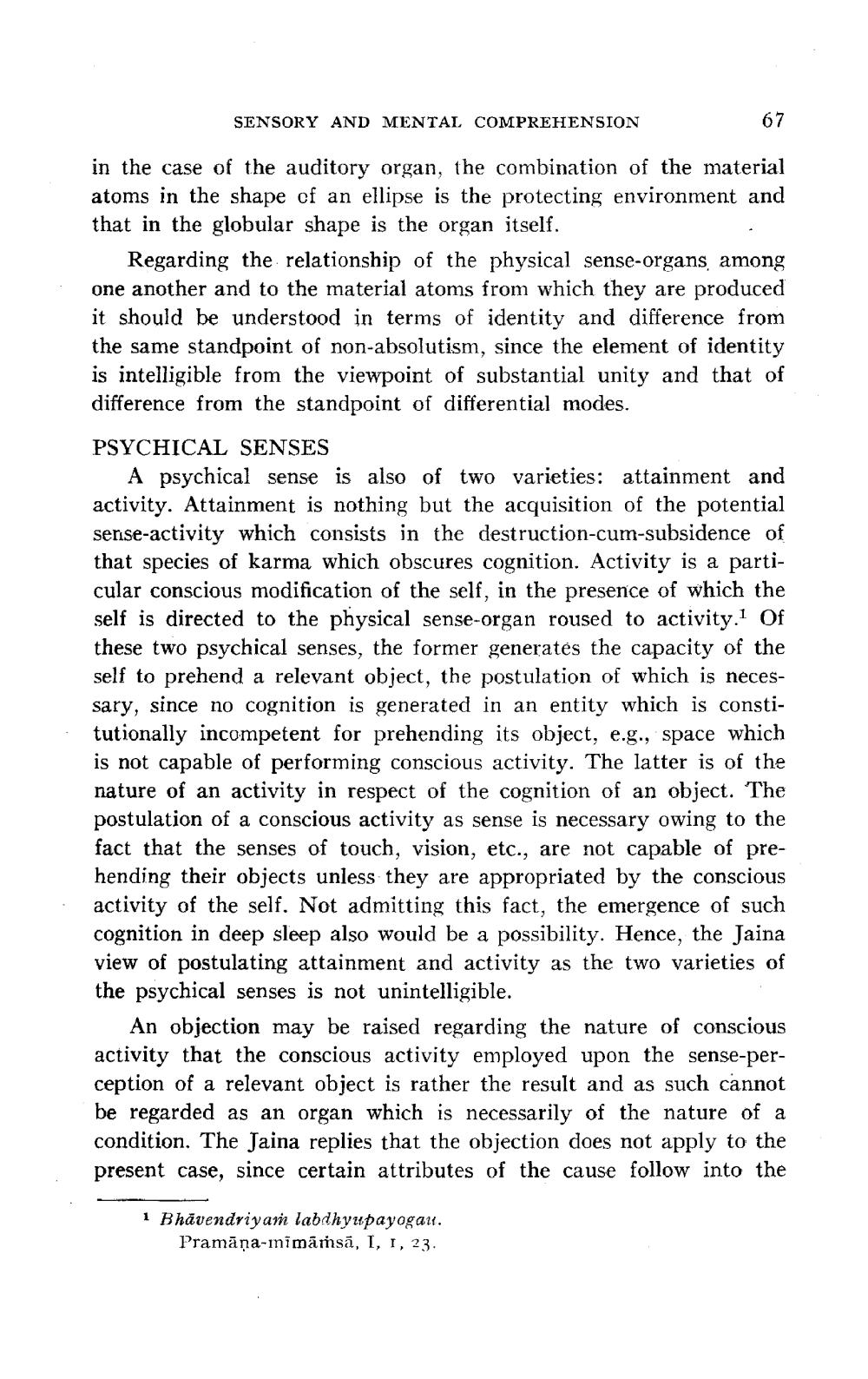________________
SENSORY AND MENTAL COMPREHENSION
in the case of the auditory organ, the combination of the material atoms in the shape of an ellipse is the protecting environment and that in the globular shape is the organ itself.
Regarding the relationship of the physical sense-organs among one another and to the material atoms from which they are produced it should be understood in terms of identity and difference from the same standpoint of non-absolutism, since the element of identity is intelligible from the viewpoint of substantial unity and that of difference from the standpoint of differential modes. PSYCHICAL SENSES
A psychical sense is also of two varieties: attainment and activity. Attainment is nothing but the acquisition of the potential sense-activity which consists in the destruction-cum-subsidence of that species of karma which obscures cognition. Activity is a particular conscious modification of the self, in the presence of which the self is directed to the physical sense-organ roused to activity. Of these two psychical senses, the former generates the capacity of the self to prehend a relevant object, the postulation of which is necessary, since no cognition is generated in an entity which is constitutionally incompetent for prehending its object, e.g., space which is not capable of performing conscious activity. The latter is of the nature of an activity in respect of the cognition of an object. The postulation of a conscious activity as sense is necessary owing to the fact that the senses of touch, vision, etc., are not capable of prehending their objects unless they are appropriated by the conscious activity of the self. Not admitting this fact, the emergence of such cognition in deep sleep also would be a possibility. Hence, the Jaina view of postulating attainment and activity as the two varieties of the psychical senses is not unintelligible.
An objection may be raised regarding the nature of conscious activity that the conscious activity employed upon the sense-perception of a relevant object is rather the result and as such cannot be regarded as an organ which is necessarily of the nature of a condition. The Jaina replies that the objection does not apply to the present case, since certain attributes of the cause follow into the
1 Bhāvendriyam labdhyupayogau.
Pramāna-mimāṁsā, I, I, 23.




